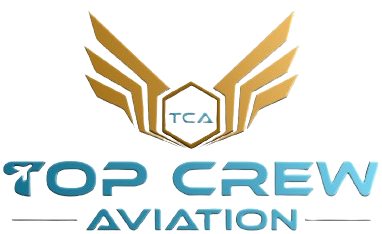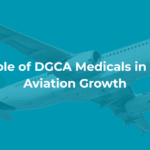
Becoming a pilot is not just about mastering flight controls — it’s also about ensuring your body and mind are fit to fly. The Directorate General of Civil Aviation (DGCA) sets strict medical fitness standards to ensure the safety of pilots, passengers, and aircraft.
Whether you are an aspiring cadet or a commercial pilot, understanding these DGCA medical fitness standards helps you prepare better, avoid delays, and maintain your aviation career.
Let’s break down these medical requirements in detail, with guidance from Top Crew Aviation, India’s trusted aviation training and consulting brand.
What Are DGCA Medical Fitness Standards?
The DGCA Medical Fitness Standards define the physical and psychological health benchmarks every pilot must meet. These standards are designed to ensure that pilots can handle both normal and emergency flight conditions safely. The DGCA categorises medical requirements into two main classes:- Class 2 Medical: For student and private pilots (before training).
- Class 1 Medical: For commercial pilots and airline operations.
DGCA Class 2 Medical Standards
The Class 2 Medical is your entry point into the aviation world. You must pass this test before applying for a Student Pilot License (SPL) or joining a flying school.Main Fitness Requirements Include:
- Vision: 6/6 distant vision (with or without correction). No colour blindness.
- Hearing: Normal hearing tested through audiometry.
- ENT Health: Free from sinus, throat, or ear disorders.
- Cardiac Health: Normal ECG report with no rhythm abnormalities.
- Respiratory System: Chest X-ray should be clear (no infections or lung issues).
- Blood & Urine: Must show normal parameters.
- Mental & Physical Fitness: Stable emotional and mental state, proper BMI, and general fitness.
Validity:
- Under 40 years: 24 months
- Above 40 years: 12 months
Who Conducts It:
DGCA-approved doctors (AMEs) listed on the eGCA portal. Top Crew Aviation helps students find nearby DGCA-approved doctors and guides them through the eGCA documentation process for faster approval.DGCA Class 1 Medical Standards
After completing your Class 2, you’ll need to pass the Class 1 Medical to continue your training for a Commercial Pilot License (CPL). This test is more detailed and is conducted at DGCA-authorised centres, such as:- Air Force Central Medical Establishment (AFCME), Delhi
- Institute of Aerospace Medicine (IAM), Bengaluru
- Apollo Hospital (DGCA-approved)
Key Tests Include:
- Physical Examination: Height, weight, BP, BMI, and posture check.
- Vision Tests: Distant, near, and colour vision — strict 6/6 requirement.
- Audiometry: To ensure clear hearing and ear balance.
- ECG & ECHO: Complete heart health evaluation.
- Lung Function Test (Spirometry): To assess breathing capacity.
- Blood & Urine Tests: To detect any internal issues.
- Chest X-ray: For lung and heart screening.
- Psychological Evaluation: Tests for stress tolerance and cognitive alertness.
Validity:
- Under 40 years: 12 months
- Above 40 years: 6 months
General Medical Fitness Criteria by DGCA
To ensure consistency across both classes, the DGCA has outlined specific universal fitness standards for all pilots:1. Cardiovascular Health
Pilots must have a strong, healthy heart. ECG tests are mandatory. Conditions like hypertension or arrhythmia need DGCA clearance.2. Vision Standards
- Must have normal colour perception.
- No night blindness or eye muscle weakness.
- Corrective lenses are allowed but must meet DGCA limits.
3. Hearing Standards
Pilots should clearly hear a whispered voice at 2 meters in each ear. Any hearing aid usage must be declared.4. Neurological Health
No history of epilepsy, seizures, or neurological disorders. The nervous system must function normally under stress.5. Psychological Stability
Emotional balance and mental alertness are essential. DGCA checks for anxiety, depression, and cognitive response levels.6. Musculoskeletal Condition
Back, joints, and limbs must be free from deformities or limitations that affect movement or control.7. Metabolic & Internal Health
No diabetes (unless approved under specific guidelines), thyroid imbalance, or liver/kidney disorder.8. BMI & Weight Standards
Body Mass Index should ideally be between 18.5 and 29.9 for optimal pilot performance.How to Prepare for DGCA Medical Examination
- Sleep & Hydration: Get at least 7–8 hours of rest and drink enough water.
- Balanced Diet: Avoid oily and heavy meals 24 hours before tests.
- Avoid Alcohol & Caffeine: For at least 48 hours before the examination.
- Carry Required Documents: ID proof, appointment slip, and previous medical reports.
- Wear Corrective Lenses (if any): Carry your prescription.
- Maintain Fitness Regularly: Exercise and routine checkups help maintain long-term medical health.
Cost and Duration of DGCA Medicals in India
Type Approx. Cost Processing Time Class 2 Medical ₹2000 – ₹3000 5–10 working days Class 1 Medical ₹4000 – ₹7000 10–15 working days The final DGCA Medical Assessment is available on your eGCA profile once verified.Common Reasons for DGCA Medical Disqualification
- Colour blindness or poor vision not correctable with lenses.
- Uncontrolled hypertension or heart abnormalities.
- Psychiatric conditions (e.g., anxiety, depression).
- Obesity beyond DGCA limits.
- Untreated ENT or sinus infections.
- Chronic diseases affecting endurance or alertness.
Revalidation & Renewal of DGCA Medical
- Class 2: Revalidated every 1–2 years.
- Class 1: Revalidated every 6–12 months.
DGCA Medical Guidelines on eGCA Portal
All DGCA medical processes are now digitised through the eGCA portal. You can:- Register for medical appointments
- Choose an approved doctor
- Upload reports and view assessments online
Steps:
- Visit https://egca.gov.in
- Log in or create your DGCA ID
- Go to “Medical Examination” → “Apply for Class 2”
- Select a doctor and an appointment slot
- Upload test results after the checkup
Importance of Meeting DGCA Medical Fitness Standards
- Ensures aviation safety for crew and passengers.
- Builds confidence in handling in-flight stress.
- Maintains global medical standards in Indian aviation.
- Helps pilots qualify for international flying licenses.
Conclusion: Fit Body, Focused Mind, and Flight-Ready Future
The DGCA Medical Fitness Standards form the backbone of a safe and efficient aviation system. They ensure every pilot is physically strong, mentally stable, and medically reliable. Whether you are just starting your pilot journey or preparing for renewal, understanding these standards helps you stay flight-ready at all times. If you need help with medical bookings, DGCA documentation, or pilot training, Top Crew Aviation is here to guide you step-by-step — from your first Class 2 medical to your CPL license. Because at Top Crew Aviation, we believe that your dream to fly deserves the best start — with perfect health and the right guidance.Frequently Asked Questions
What are the DGCA medical fitness standards for pilots?
They include vision tests, hearing tests, ECG, blood tests, lung tests, and psychological health assessments to ensure fitness to fly.
What is the difference between DGCA Class 1 and Class 2 Medicals?
Class 2 is for student/private pilots, while Class 1 is for commercial pilots.
How often should I renew my DGCA medical?
Every 6–24 months, depending on your medical class and age.
Can I wear glasses or contact lenses?
Yes, as long as your corrected vision meets DGCA standards.
Who can guide me through DGCA medical procedures?
Top Crew Aviation provides expert support for medical appointments, eGCA uploads, and pilot license assistance.



